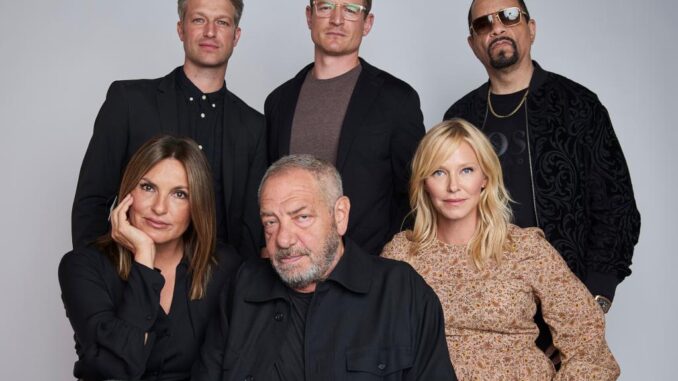
The Weight of Silence, The Power of Truth: Mariska Hargitay's Family Secret Unveiled
For three decades, Mariska Hargitay has etched herself into the cultural landscape as Olivia Benson, the empathetic and unwavering detective who champions the voiceless on "Law & Order: Special Victims Unit." Her on-screen persona, a beacon of hope for survivors of sexual assault and abuse, is deeply intertwined with the real-life trauma her own family endured. Yet, for years, the full scope of that trauma remained shrouded in a carefully constructed silence, a protective barrier built around the memory of her mother, the iconic actress Jayne Mansfield. A hypothetical documentary, bravely titled "Breaking the Starlight: Mariska Hargitay and the Legacy of Silence," proposes to finally unveil the family secret hidden for so long, a revelation that could reshape our understanding of both the actress and the indelible mark left by tragedy.
The imagined documentary would likely begin with the shimmering glamour of Jayne Mansfield's Hollywood reign. Archival footage would paint a picture of a vibrant, intelligent woman grappling with the limitations placed upon her by the industry's objectification. Interviews with historians and film critics would dissect the complex narrative surrounding Mansfield: a comedic genius relegated to bombshell roles, a fiercely ambitious businesswoman battling a patriarchal system, a mother struggling to balance the demands of stardom with the needs of her children. This initial exploration would serve as a critical foundation, establishing the context for the events that ultimately shaped Mariska's life.
The narrative would then subtly shift, introducing the shadow of instability that crept into Mansfield's life. Interviews with surviving family members, friends, and colleagues, interspersed with previously unseen home movies, would begin to hint at the dysfunction that existed beneath the glossy surface. The turbulent marriage to Mickey Hargitay, the children's exposure to the pressures of fame, and Mansfield's increasingly erratic behavior would be presented not as scandalous gossip, but as pieces of a larger, more profound puzzle.
The heart of the documentary, however, would lie in the exploration of the infamous 1967 car accident that claimed Mansfield's life and critically injured a young Mariska. While the accident itself is public knowledge, the documentary would delve deeper into the psychological aftermath. The silence that followed the tragedy, the unspoken grief, and the coping mechanisms adopted by the surviving Hargitay children would be carefully examined.
This is where the "family secret" would likely be unveiled. The documentary might reveal previously suppressed accounts of the children's experiences in the aftermath of the accident. Perhaps it would detail the challenges Mariska faced in navigating her grief, the fear of inheriting her mother's perceived vulnerabilities, or the pressure to live up to the glamorous legacy that was thrust upon her. It could explore the role of other family members in shaping Mariska's understanding of the events, the silences they upheld, and the reasons behind them.
Most importantly, the documentary would highlight the ways in which this trauma, consciously or unconsciously, shaped Mariska Hargitay's journey. Her decision to pursue acting, her unwavering commitment to "Law & Order: SVU," and her tireless advocacy for survivors of sexual assault would be presented not as random career choices, but as a direct response to the unresolved issues of her past. The documentary might feature interviews with trauma specialists, offering insights into the psychological impact of such profound loss and the resilience that can emerge in the face of adversity.
The final act of "Breaking the Starlight" would focus on the power of truth and the transformative potential of confronting the past. By breaking the decades-long silence, the documentary would aim to empower others who have experienced similar trauma to find their own voices. It would showcase Mariska's journey from a young girl grappling with unimaginable loss to a powerful advocate for justice, demonstrating that even in the darkest of circumstances, healing and hope are possible.
Ultimately, this hypothetical documentary promises to be more than just a biographical exploration of Mariska Hargitay's life. It is an exploration of the enduring power of family secrets, the weight of silence, and the profound impact of trauma on the individual and the collective. By courageously unveiling the hidden truths of her past, Mariska Hargitay could not only shed light on her own journey, but also illuminate a path toward healing and understanding for countless others. The legacy of Jayne Mansfield, once defined by glamour and tragedy, could be redefined by the strength and resilience of her daughter, a testament to the enduring power of truth.
